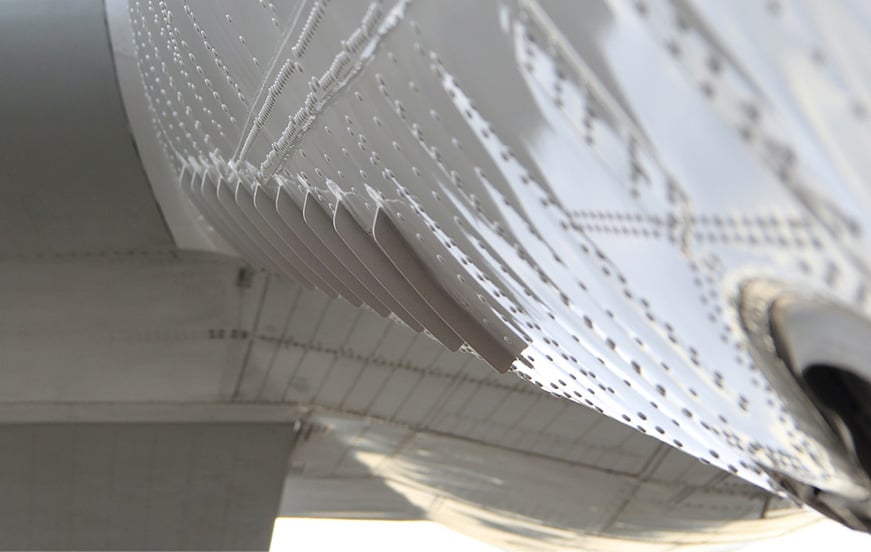Written by Manufacturing Tomorrow – February 24, 2020
3D Printed Microvanes bring performance-enhancement and cost-reduction to both military and commercial operators. They have proven to be the single most cost-effective improvement for rear cargo aircraft with airdrop capability due to their low upfront cost, ease of installation, and minimal aircraft downtime. Metro Aerospace, LLC, headquartered in Dallas, Texas, holds the sole global license to manufacture and supply Microvanes, a technology invented and patented by Lockheed Martin.
With fuel availability being a strategic imperative for defense fleets, Texas’ Metro Aerospace predicts sustainability will be fundamental to fleet decisions in 2020. This clearly aligns with statements made by Roberto Guerrero, Deputy Assistant Secretary of the U.S. Air Force for operational energy, who wrote last month in Defense News that tactical dependence on fuel will critically tie global fleets to investments in new drag-reduction technologies that optimize fuel utilization.
“Sustainability measures today directly affect both operational and national security – it benefits us all to find ways to use less fuel,” said Damon Ward, executive chairman of Metro Aerospace. “Microvanes are one way to do that.”
Strategically surface-mounted on the aft body of rear cargo airframes, Microvanes reshape tail section airflow, reducing the significant amount of drag created on aircrafts like the C-130, C-17, L-100, and KC-135. An infographic released by the Air Force Installations, Environment and Energy program this year predicted a $10 million annual savings and over 420 more sorties a year if Microvanes were installed across just the U.S. Air Force’s C-17 fleet.
Currently used by fleets across five continents, Microvanes have been proven to reduce fuel consumption, carbon emissions, as well as engine wear through lower turbine inlet temperatures (TIT). As a result, fleets that use them have successfully extended time on mission and increased both range and payload capability, while also reducing refueling, allowing them to get on target faster.
“We’ve had extensive conversations with pilots that have experience flying with Microvanes installed on the Lockheed Hercules,” added Ward, who is also a pilot himself. “They said Microvanes allowed them to execute an unabated climb directly to cruise altitude without the need to step climb when carrying a large cargo. In combat zones, getting an aircraft in the air faster can be a critical benefit to national security.”
Pilots also commented that when they were “light on their return legs”, they almost always had to pull back the power levers when Microvanes were installed. When they did not, they ended up hitting the ‘barber pole’, pilot jargon referring to flying an aircraft at the maximum safe velocity. This dispels the commonly held notion that fuel efficiency compromises performance.
As Guerrero noted in his article, “When we use our assets more efficiently in peacetime, we build a more energy-aware culture that will better prepare our airmen for tomorrow’s fight, if and when it happens.”
